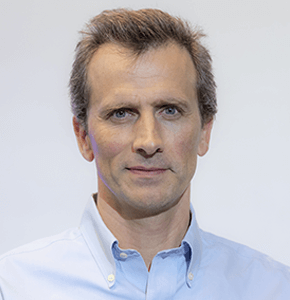
Francis Bach
Research Director
Francis Bach is a researcher at Inria and since 2011 has headed the statistical learning (machine learning) team of the Computer Science Department of the Ecole Normale Supérieure (ENS), which is a joint venture between CNRS, ENS and Inria. He has been an adjunct professor at ENS since 2016. He graduated from Ecole Polytechnique (1997) and obtained his PhD in Computer Science from UC Berkeley in 2005, under the supervision of Professor Michael Jordan. After two years at the Mathematical Morphology Center of the Ecole des Mines de Paris, he joined the CNRS/ENS/Inria computer vision team from 2007 to 2010.
He is mainly interested in algorithmic and theoretical aspects of machine learning, and more specifically in parsimonious methods, kernel-based methods, large-scale optimization, computer vision and signal processing.
Francis Bach was awarded a Starting Grant in 2009 and a Consolidator Grant in 2016 from the European Research Council. He received the Inria Young Researcher Award in 2012, the "test-of-time ICML" prize in 2014, as well as the Lagrange Prize in Continuous Optimization in 2018 and the Jean-Jacques Moreau Prize in 2019. In 2015, he was co-chair of the program committee of the International Conference in Machine Learning (ICML) and its president in 2018. He is currently co-editor-in-chief of the Journal of Machine Learning Research (JMLR).
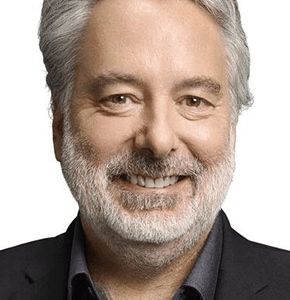
François Laviolette
Director of the Center for Massive Data Research
François Laviolette is a full professor in the Department of Computer Science and Software Engineering at Université Laval. His research focuses on artificial intelligence, in particular machine learning. He is a leader in PAC-Bayesian theory, which enables us to better understand machine learning algorithms and design new ones, and is interested in algorithms for solving learning problems related to genomics, proteomics and drug discovery. He is also interested in making artificial intelligences interpretable, with the aim of better integrating systems where humans are in the decision-making loop. He is Director of the Centre de recherche en données massives(CRDM) at Université Laval, which brings together over 50 research professors.
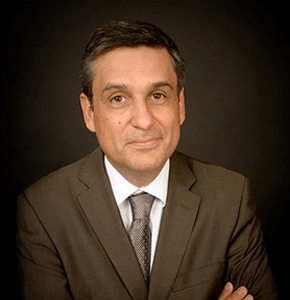
Christophe Lecante
Founding CEO
After starting out as business intelligence manager, then strategic marketing manager for an international services group based in Canada, Christophe Lecante went on to manage several entities in the aeronautics sector.
In 2003, TecKnowMetrix (TKM) was created within the Grenoble incubator as a spin-off from public research (INRA and Université de Grenoble). A software publisher and service company, TKM specializes in the use of Big Data applied to scientific literature.
Chritsophe Lecante takes part in a number of think tanks and workshops on innovation and the relationship between science and society. He assists major groups, research centers and start-ups in implementing and managing their innovation strategies. He is a member of the jury for competitions such as "Docteurs Entrepreneurs", "Start up Connexion" and "Digital Impulse" (Rencontres Université Entreprise et Huawei).
He also takes part in numerous round tables and conferences on the subjects of Big Data, Business Intelligence and Technology Transfer.
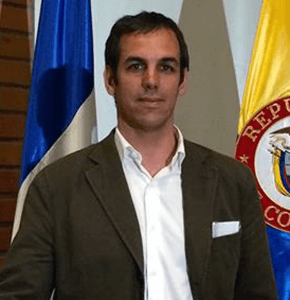
Jean-Michel Loubes
Professor
Jean-Michel Loubes is Professor of Applied Mathematics at the Institut de Mathématiques de Toulouse, and holder of the "Fair and Robust Learning" Chair at the Institut d'Intelligence Naturelle et Artificielle de Toulouse (ANITI). After completing his PhD in Toulouse and Leiden, he was a CNRS researcher at the University of Orsay and then at the University of Montpellier from 2001 to 2007. Since 2007, he has been a professor at the University of Toulouse, leading the Statistics and Probability team from 2008 to 2012. He has worked in mathematical statistics on estimation methods and optimal speeds in Machine Learning. His current research focuses on the application of optimal transport theory in Machine Learning, and on issues of fairness and robustness in Artificial Intelligence. Highly involved in links between academia and industry, he was regional manager of the CNRS's Agence de Valorisation des Mathématiques from 2012 to 2017, and has been a member of the Scientific Committee of the CNRS's Institut des Sciences Mathématiques et de leur Interaction (INSMI) since 2019.
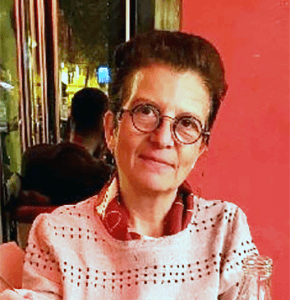
Juliette Mattioli
Senior Artificial Intelligence Expert
Juliette Mattioli began her industrial career in 1990, with a thesis on pattern recognition using mathematical morphology and neural networks at Thomson-CSF. In 1993, she became a research engineer. As she has progressed through the various R&D laboratories she has managed, she has extended her spectrum of skills from image processing to semantic information fusion, from decision support to combinatorial optimization. Her presence, both on conference program committees and national bodies (mission #FranceIA, plan "AI 2021" for IdF, Hub "Data Science & AI" of the Systematic Paris-Région cluster) or international (G7 of innovators in 2017) also shows her intention to share her knowledge and participate in the emancipation of corporate research. Since 2010, she has been attached to Thales's technical management to help define the company's research and innovation strategy, for the algorithmic field with a particular focus on trusted AI, but also on algorithmic engineering to accelerate the industrial deployment of AI-based solutions.
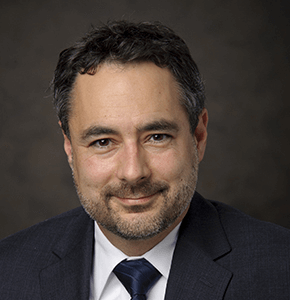
François Provencher
Innovation Officer
As Head of Digital Innovation at Pratt & Whitney Canada, François Provencher is responsible for all emerging digital technologies (including, among others, artificial intelligence, quantum computing, advanced robotics, etc.). His main duties include technology watch, technology dissemination within the company, and the implementation of innovation management processes specific to digital technologies. He is also actively involved in the development of an aerodigital ecosystem.
He was appointed Director of the Technology Collaboration Office in 2013. This office is responsible for all research projects carried out in collaboration with universities and other aerospace companies. He has also been involved in a number of organizations dedicated to aerospace research and education, including CRIAQ, the AIAC Technology Committee, GARDN, CAMAQ and SA2GE.
Previously, he worked at Dassault Systèmes as a consultant and then manager in product lifecycle management. In this capacity, he worked with major aerospace and automotive companies such as Boeing, Chrysler and Bombardier Aerospace.
